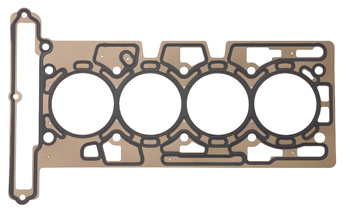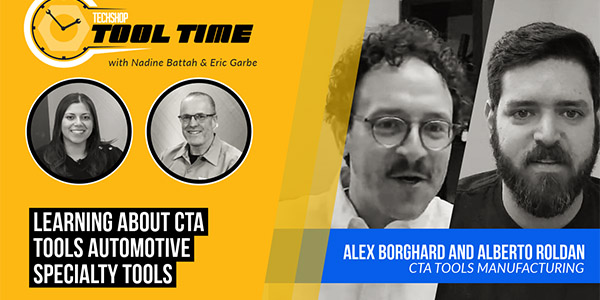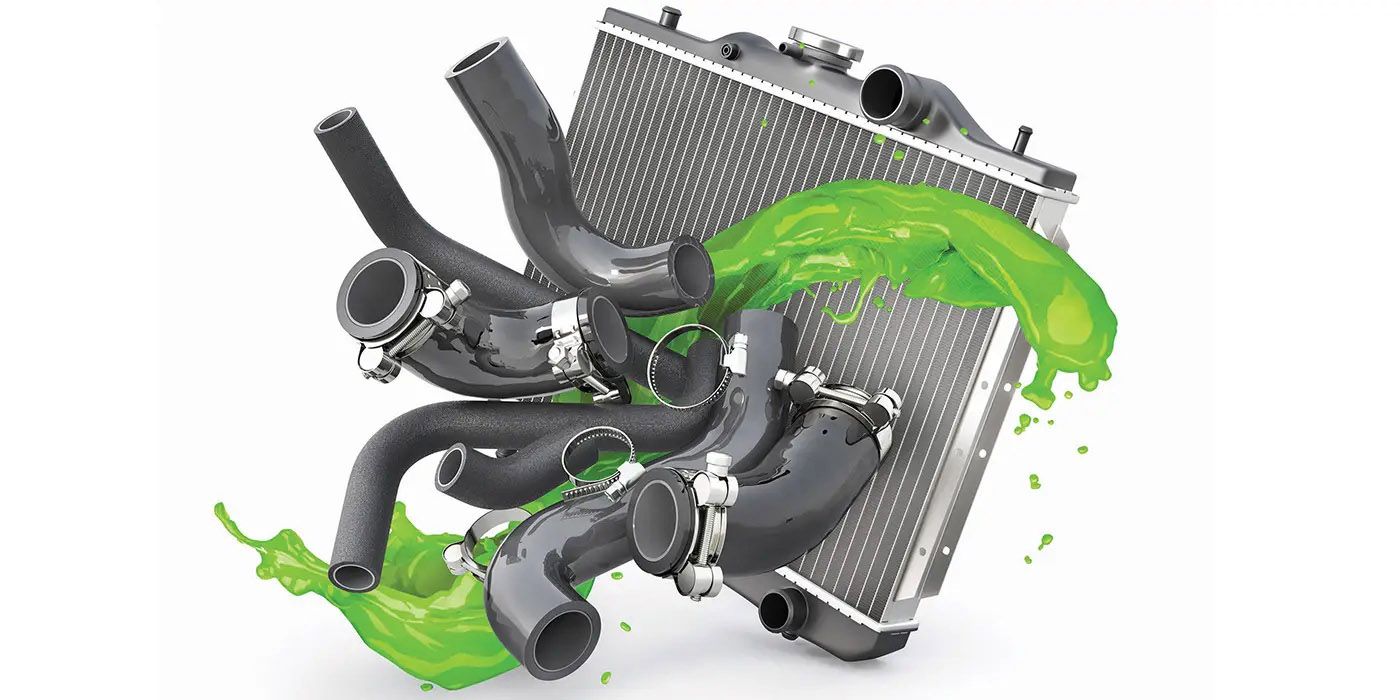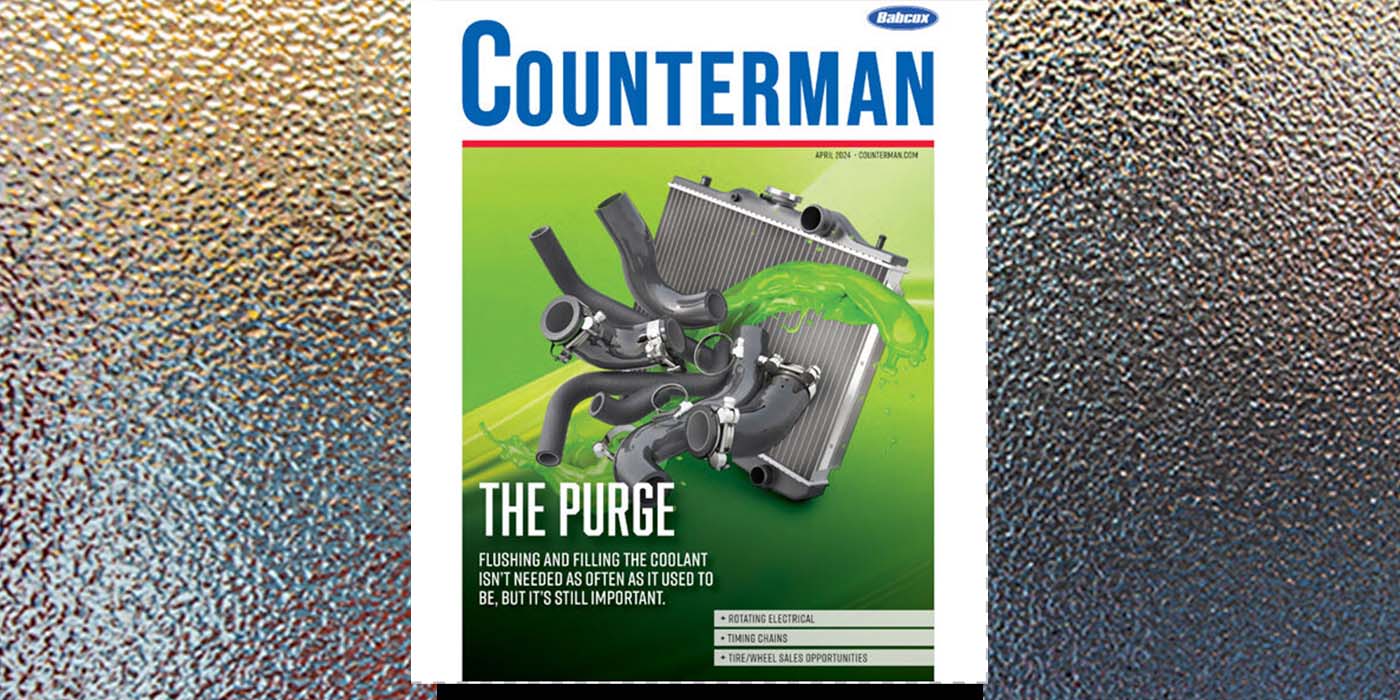By the time a vehicle is 10 to 15 years old, chances are some of the engine’s original equipment gaskets may be starting to leak. These include valve cover and oil pan gaskets, front cover gaskets, intake and exhaust manifold gaskets and front and rear crankshaft seals. The combination of time, temperature and many miles driven cause many of these gaskets to fail.
 Oil leaks are a common problem with high-mileage engines regardless of the year, make or model of vehicle. High-end imports develop leaks just as often as more common domestic nameplates. No vehicle manufacturer is immune from the effects of gasket-aging. Most late model oil pan and valve cover gaskets are made of molded rubber (neoprene or other high-temperature synthetic rubbers) and are much longer-lived than the old cork/rubber gaskets of years gone by. Some molded rubber gaskets also have metal or plastic carriers for reinforcement and to control compression thickness. Molded rubber has good elasticity and resists taking a compression set. It also swells slightly when exposed to oil, allowing it to fill any gaps that might allow a leak. But durable as they are, they don’t last forever. Eventually, the rubber deteriorates, loses elasticity and cracks or leaks.
Oil leaks are a common problem with high-mileage engines regardless of the year, make or model of vehicle. High-end imports develop leaks just as often as more common domestic nameplates. No vehicle manufacturer is immune from the effects of gasket-aging. Most late model oil pan and valve cover gaskets are made of molded rubber (neoprene or other high-temperature synthetic rubbers) and are much longer-lived than the old cork/rubber gaskets of years gone by. Some molded rubber gaskets also have metal or plastic carriers for reinforcement and to control compression thickness. Molded rubber has good elasticity and resists taking a compression set. It also swells slightly when exposed to oil, allowing it to fill any gaps that might allow a leak. But durable as they are, they don’t last forever. Eventually, the rubber deteriorates, loses elasticity and cracks or leaks.
The first sign of trouble may be oil spots on a garage floor or driveway, or a gradual loss of oil between oil changes. A really bad oil leak may cause a loss of oil pressure if the dipstick isn’t checked regularly so make-up oil can be added to offset the loss. Oil leaks also can drip on hot exhaust pipes and create a burnt smell that may be noticeable while driving or after parking the car.
Many leaky pan and cover gaskets can be replaced fairly easily, but others can be more difficult to install depending on their location and accessibility. With leaky crankshaft end seals, a leaky rear main seal typically requires major surgery to replace, though front seals are usually easier to change. Crankshaft repair sleeves are available if the area where the seal rubs against the crank is worn or grooved.
Coolant leaks can be a problem with some high-mileage intake manifold gaskets. These include 1990 to 2005 Buick, Chevrolet, Oldsmobile and Pontiac 3.1L, 3.4L, 3.8L, 4.2L and 4.3L V6 engines, and 1996 to 2002 Chevy 5.0L and 5.7L V8 engines. Corrosion around the coolant ports in the cylinder head and/or deterioration of the gasket itself allows coolant to leak into the valley area of the block, which then dribbles down into the crankcase. The loss of coolant (which often can’t be seen) eventually causes the engine to overheat, and if the problem isn’t fixed, oil dilution and sludging can cause engine damage and possible engine failure.
Selling your customer a bottle of cooling system sealer may provide a temporary fix for such a leak. But the only permanent fix is to replace the leaky intake manifold gaskets, which on many of these engines is a time-consuming and expensive job — but much cheaper than replacing an engine.
Other applications where intake manifold gasket coolant leaks sometimes occur include Ford 3.8L, 3.9L, 4.0L and 4.2L V6 engines, and 4.6L and 5.0L V8s, also 1990 to 2002 Chrysler 3.3L and 3.8L V6s.
A customer who is replacing intake manifold gaskets will also need coolant to refill the cooling system (50/50 mix or concentrate that is compatible with the OEM coolant). GM also recommends using thread sealer on the 3.1L intake manifold bolts.








